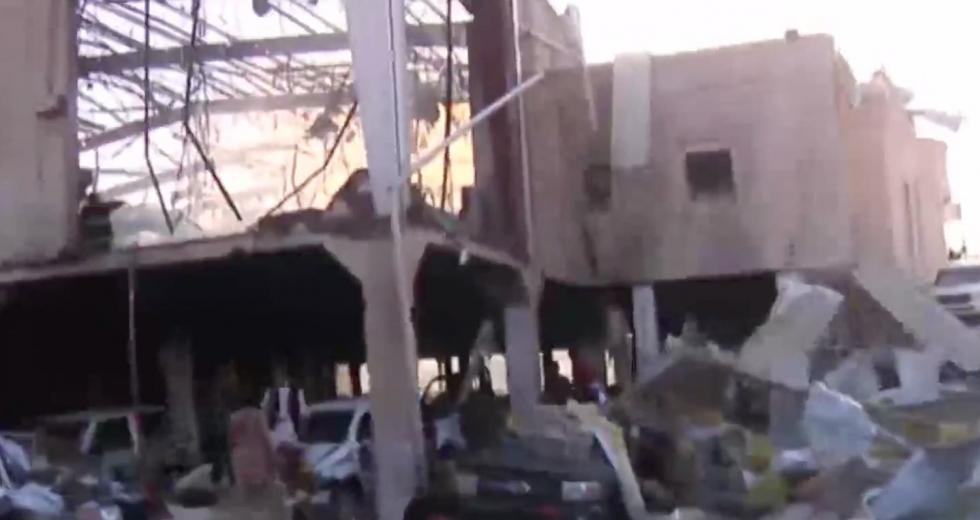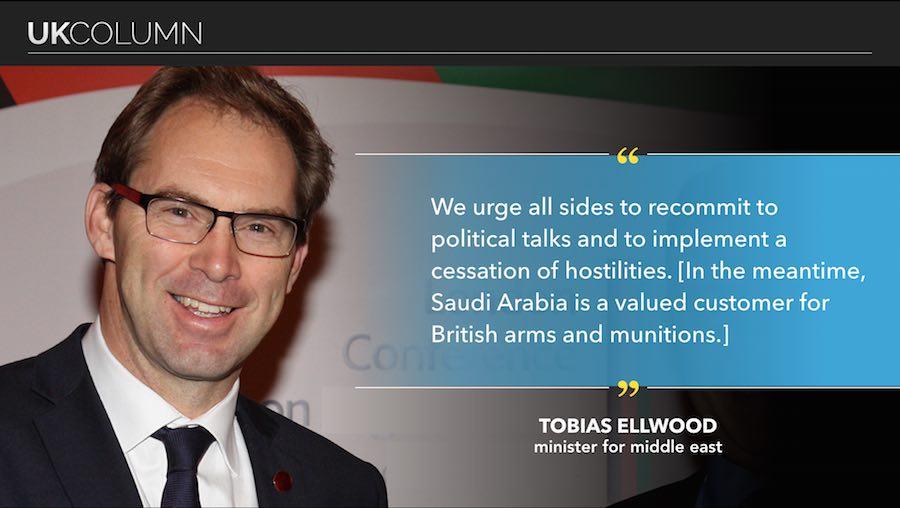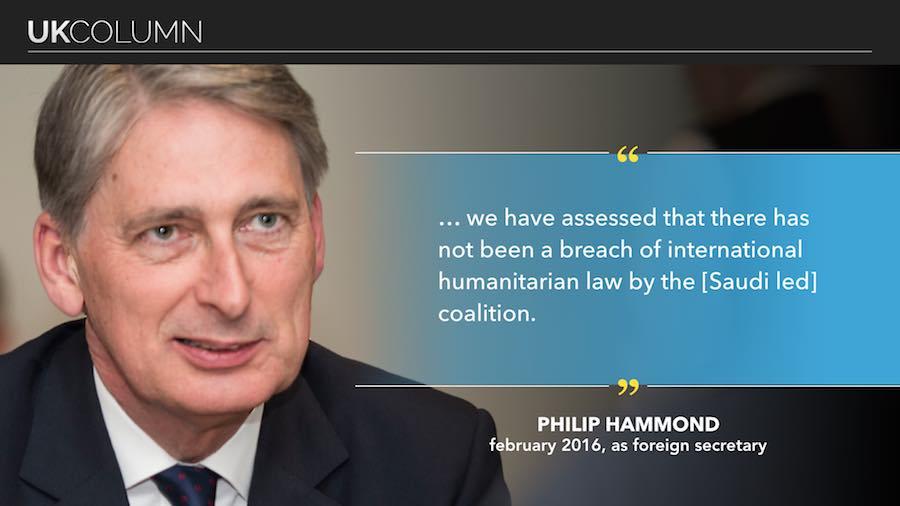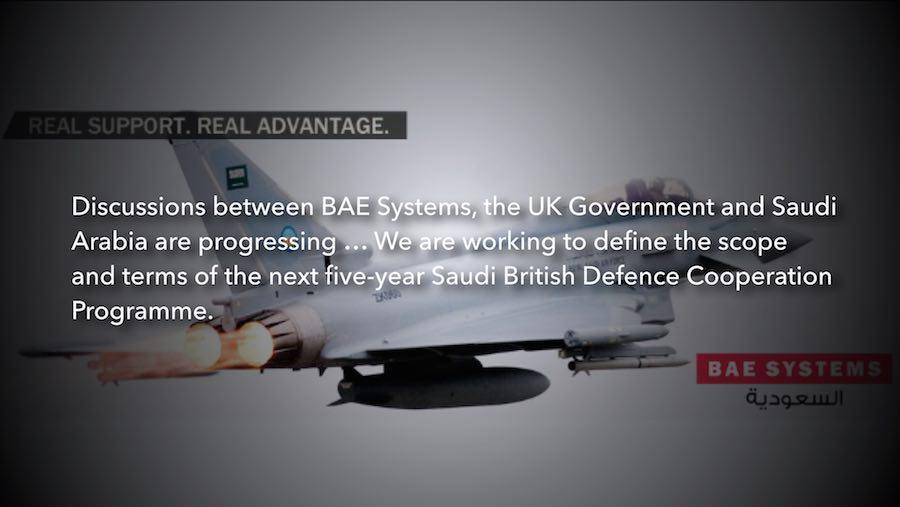
The Saudi’s conducted nine airstrikes on Khamis Street in Sanaa where the funeral for the father of Yemen’s interior minister was being held. Although they claim “regret” for the deaths, Saudi does not accept responsibility for the attack. This seems to bear out Brian Gerrish’s suggestion on Monday’s UK Column News that perhaps a third party, quite possibly Britain, was providing targetting information for the Saudis.
Following the bombings, British Minister for the Middle East, Tobias Ellwood expressed his “concern”:
I am deeply concerned by reports of an airstrike hitting a funeral hall in the Yemeni capital Sana’a yesterday. The scenes from the site are shocking.
I am raising my concerns with the Saudi Ambassador to London today and urge the Saudi-led coalition’s announced investigation into the incident to take place as a matter of urgency.
There can be no military solution to this conflict.

Saudi Arabia has a long and close relationship with Britain, and a dirty one. Successive governments have lied and covered up bribes related to arms deals, including shutting down Serious Fraud Office investigations. Just this year, the Foreign Office was forced to retract six statements it had made in defence of Saudi atrocities in Yemen, and in defence of British arms deals.
In January for example, Philip Hammond, then Foreign Secretary said that:

By July the Foreign Office had changed that to:
We have not assessed that there has been a breach of International Humanitarian Law by the [Saudi led] coalition.
Similarly, in June, Philip Hammond once again decided that he would be definitive on the issue:
The MOD assessment is that the Saudi-led coalition is not targeting civilians.
And again, the Foreign Office was forced to retract the lie:
The MOD has not assessed that the Saudi-led coalition is targeting civilians. We have assessed that Saudi processes and procedures have been put in place to ensure respect for the principles of international humanitarian law; and that the Saudis both have been and continue to be genuinely committed to compliance with international humanitarian law.
Perhaps the most obscene aspect of all this is the insistence that countries are best suited to investigate their own behaviour when atrocities take place. The Foreign Office says:
We regularly encourage Saudi Arabia to investigate any allegations of breaches of International Humanitarian Law which are attributed to them; and for their investigations to be thorough and conclusive. Saudi Arabia has publicly stated that it is investigating reports of alleged violations, and that any lessons learned will be acted upon. We continue to believe that they have the best insight into their own military procedures, allowing them to understand what went wrong and apply the lessons learnt in the best possible way, if required. This is the standard we set ourselves and our allies. For example, when allegations have been made against us in Afghanistan and Iraq we have investigated these claims ourselves. We did not expect other states to do this and form judgements on our behalf.
So the British standard is to commit the atrocity, investigate yourself and give yourself a clean bill of health. That’s a great position to be in if they are allowed to get away with it.
The Committees on Arms Exports Controls is a cross bench select committee made up of 16 MPs from four parties. At the beginning of September a report on the Yemeni situation was leaked. The report said that “the weight of evidence of violations of international humanitarian law by the Saudi-led coalition is now so great, that it is very difficult to continue to support Saudi Arabia”
The scale of British support for Saudi Arabia beyond comprehension: £3.3 billion of arms exports to Saudi Arabia in the first twelve months of the “war” on Yemen. This includes so-called ML10 licences worth £2.2 billion, which cover “aircraft, lighter-than-air vehicles, Unmanned Aerial Vehicles, aero-engines and aircraft equipment, related equipment, and components … specially designed or modified for military use.”
ML4 licences worth £1.1 billion were also issued covering “bombs, torpedoes, rockets, missiles, other explosive devices and charges and related equipment and accessories … and specially designed components therefor.”
Finally, £430,000 worth of licences for armoured vehicles and tanks were also issued.
Tobias Elwood met with the Saudi Royal Family and John Kerry in August this year to express his “concern” about Yemen and the prospects for Britain’s arms trade while the conflict proceeds.
BAE Systems announced at the end of last week that discussions between them, the British Government and Saudi Arabia continue.


